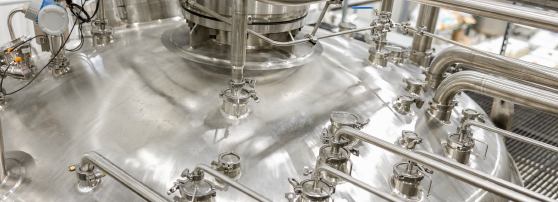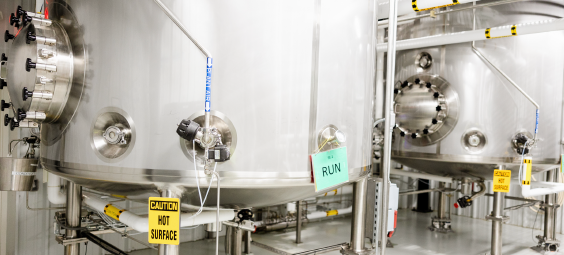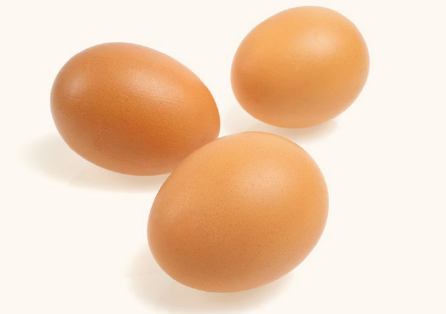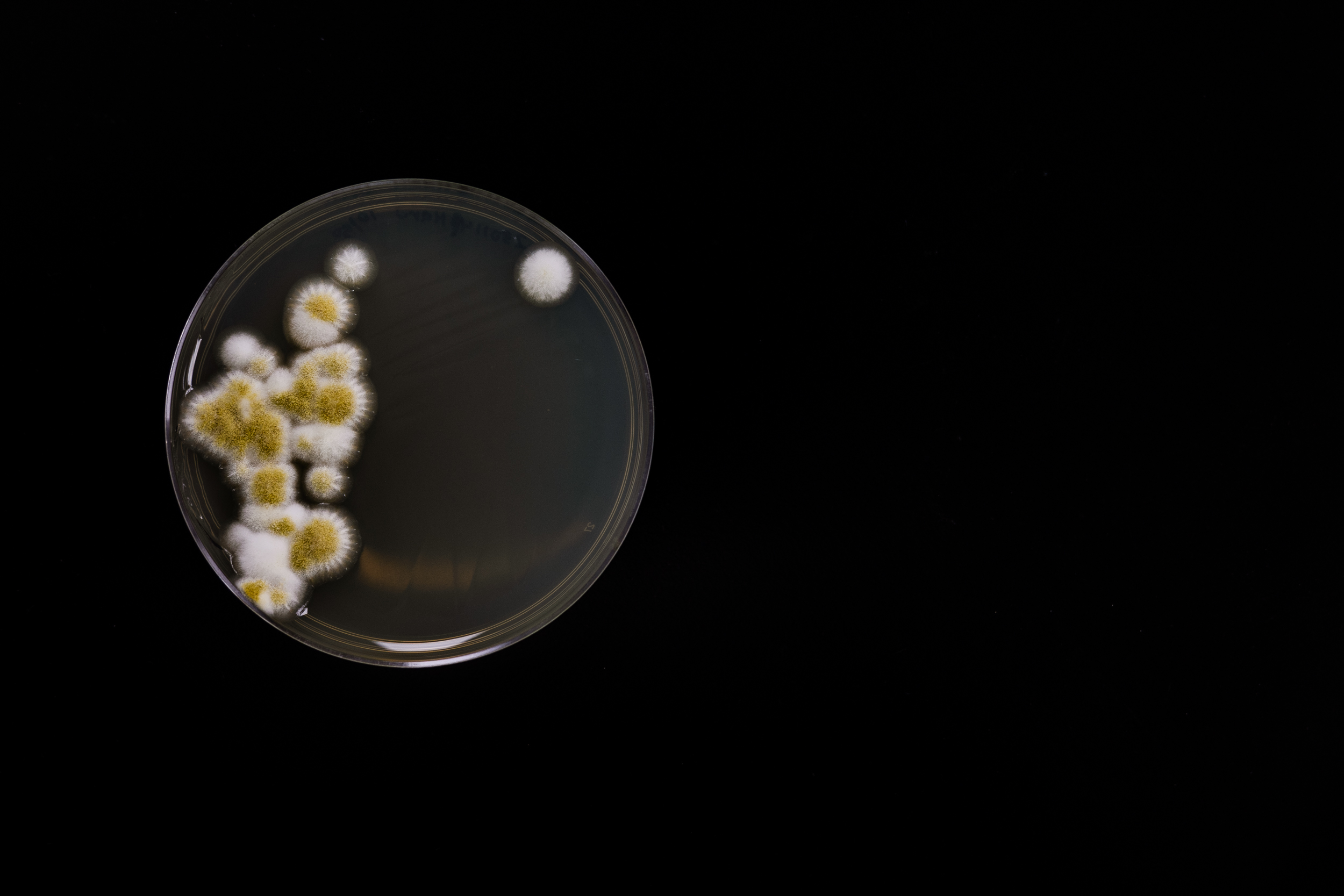
Showcasing BioZyme® Inc.’s AO-Biotics line of fermentation products at the world’s largest annual poultry and egg, meat and animal food industry event of its kind, the International Production & Processing Expo (IPPE) in Atlanta.
From January 30 until February 1, 2024, the Georgia World Congress Center in Atlanta set the stage for the industry from all over the world to admire the latest innovations and learn about new frontiers in the poultry sector.
The IPPE influences and facilitates global information exchange in poultry nutrition, animal agriculture and the meat and egg industries.
Amongst the significant crowd of stakeholders in egg production from across the globe, BioZyme Inc. took the opportunity to present the latest findings on AO-Biotics® EQE, the first-and-only Aspergillus oryzae-derived postbiotic developed specifically for layers, which was officially launched at the 2023 edition of the IPPE.

AO-Biotics is a line of fermentation products derived from BioZyme’s innovative fermentation of Aspergillus oryzae (AO) that promote resilience. The brand includes prebiotics and postbiotics.
BioZyme’s flagship feed additive, AO-Biotics® Amaferm®, is also part of the brand. Amaferm is a research-proven
prebiotic to enhance digestibility. After decades of researching the impact and mode of action of AO prebiotics in animals, BioZyme began focusing on what else AO could do, eventually leading to the discovery of interesting postbiotics.
Built on 70 years of Aspergillus oryzae (AO) fermentation expertise, BioZyme’s postbiotics are made by a unique process that breaks down nonliving components of AO into metabolites to target specific problems affecting animal health, welfare and/or productivity.
This innovative approach uses AO as a biofactory to create biotics that leverage animal resilience to face a specific challenge, like improving egg production.

After proving the effects of EQE on egg production in a university setting, BioZyme international business and innovation managers Dr. César Ocasio-Vega and Dr. Fernando Bargo worked with producers to validate the impact of dietary supplementation with AO-Biotics EQE on productive performance of laying hens under commercial conditions.
These validation studies have been ongoing for over one year, and as data continues to accumulate, are making a significant case for the use of EQE in layer diets. Discover what they shared abouttheir findings during IPPE below.
Q: Dr. Bargo and Dr. Ocasio-Vega, great to see you here in Atlanta! Would you please tell us more about the background and the objective of the studies you are presenting here?
Ocasio-Vega: Currently, consumers’ expectations for eggs have changed a lot, and the expectations for healthier and more high-quality eggs being produced in compliance with animal welfare and sustainability practices are increasing. Previous research by De Juan et al. (2021 and 2022) reported the use of an Aspergillus oryzae-derived postbiotic improved the productivity and eggshell quality in laying hens.
Therefore, with the validation studies we have conducted and are presenting here, we intended to assess the influence of supplementing laying hens’ diets with AO-Biotics EQE on hen performance, egg quality and productive lifespan under commercial conditions. We know that when layers are under commercial conditions, the stressors and environment in general can be quite different than what we might see in a university study.
Q: Dr. Bargo, you have been instrumental in the execution of the trials alongside Dr. Ocasio-Vega and the BioZyme Research and Development team. Can you please summarize for our readers how AO-Biotics EQE effects the performance of laying hens?
Bargo: We have data from more than 500,000 laying hens confirming the inclusion of EQE in the nutritional program of different operations improved hen performance, egg quality and the productive life span of the flocks. The validation trials have been conducted across the globe under varying conditions and environments.
This has included trials in Mexico, Colombia, Italy, France, Germany and Greece. When we summarize all of that data, we see that dietary supplementation with EQE resulted in 2% more egg mass, in 3% improvement in egg production throughout the laying cycle and 3% more sellable eggs per hen. In addition, feeding EQE reduced the mortality of the flock across the life span by 34%.
Q: What dosage have you tested and what is your recommendation?
Bargo: During the research trials, EQE groups were fed the same commercial basal diets as the control groups but were supplemented with 50 grams of EQE per metric ton of feed. Feeding this 50 grams has shown positive effects on the productive life span of the hens, the egg mass, the eggshell quality and the number of sellable eggs. BioZyme’s unique drying technology at our state-of-the-art fermentation facility in St. Joseph, Missouri, allows us to create a very concentrated and accurate product. As a result, you see that the inclusion rate is very small, but yields consistent results.

Q: Dr. Ocasio-Vega, would you mind reiterating for our readers how you define a postbiotic and what makes AO-Biotics EQE so special?
Ocasio-Vega: BioZyme is a member of the International Scientific Association for Probiotics and Prebiotics (ISAPP), and we uphold ourselves to their standard definitions.
For a postbiotics, ISAPP defines this as a “preparation of inanimate microorganisms and/or their components that confer a health benefit on the host.” This differs slightly from a prebiotic, which is defined as “a substrate that is selectively utilized by host microorganisms conferring a health benefit”. Therefore, you can see that a postbiotic is different from a prebiotic because it is not necessarily utilized by the host microorganisms.
AO-Biotics EQE, the first postbiotic of its kind, was developed using BioZyme’s proprietary strain of Aspergillus oryzae; a unique, multicellular fungus used to specially ferment biotics tailored to address specific challenges. Produced using patent-pending technology, EQE was developed to target the challenges in the laying industry to help producers achieve more sellable eggs, an improved egg mass, and an increased productive lifespan of the laying
hens.

AO-Biotics is a line of fermentation products derived from BioZyme’s innovative fermentation of Aspergillus oryzae (AO) to promote resilience. Learn more at AOBiotics.com.
Contact Volker Altenbokum at [email protected] or Alan Lee at [email protected] for more information.
Subscribe now to the poultry technical magazine
AUTHORS

Layer Longevity Starts at Rearing
H&N Technical Team
The Strategy for a Proper Infectious Bronchitis Control
Ceva Technical Team
Elevate Hatchery Performance with Petersime’s New Data-Driven Incubation Support Service
Petersime Technical Team
Maize and Soybean Meal Demand and Supply Situation in Indian Poultry Industry
Ricky Thaper
Production of Formed Injected Smoked Chicken Ham
Leonardo Ortiz Escoto
Antimicrobial Resistance in the Poultry Food Chain and Novel Strategies of Bacterial Control
Edgar O. Oviedo-Rondón
GREG TYLER INTERVIEW
Greg Tyler
Insights from the Inaugural US-RSPE Framework Report
Elena Myhre
Newcastle Disease: Knowing the Virus Better to Make the Best Control Decisions. Part II
Eliana Icochea D’Arrigo
Avian Pathogenic E. coli (APEC): Serotypes and Virulence
Cecilia Rosario Cortés
The Importance of Staff Training on Animal Welfare Issues in Poultry Industry
M. Verónica Jiménez Grez
Rodent Control is a Key Factor in Poultry Biosecurity and Sustainability
Edgar O. Oviedo-Rondón